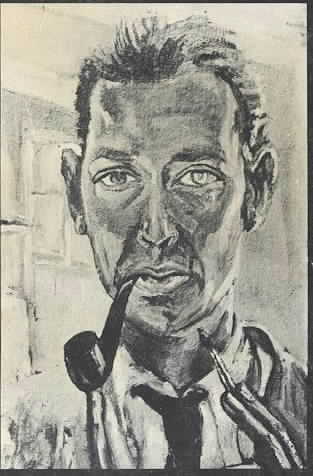
The Society met periodically and ad hoc, attended by a fluctuating membership--usually gathering around some relevant event, such as the performance of a Cummings play or the arrival of a visiting notable--who were convened in Forrest's office and then transposed to a nearby restaurant for lunch or dinner. An account of the meeting then appeared in the Journal which was produced in the manner of a typewritten newsletter, along with articles, poems, letters, and other items of interest to those who cherish Cummings and his works.
In 1992, SPRING, new series was started, featuring a more regular journal format, and a greater selection of articles and studies of Cummings' life, works, and times. The editors continue to aim for the freshness, spontaneity, and variety of the original Journal, and so retain a lively interest in music, theater, drama, poetry, news and notes, etc. For more on the history of the society and journal, click here.